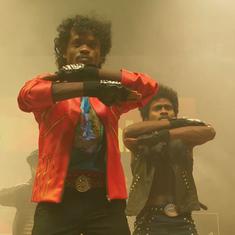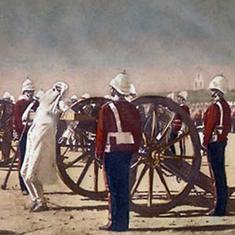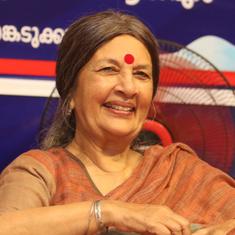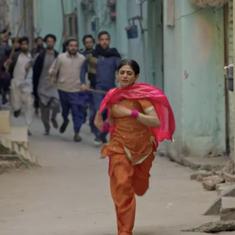With the first game of Euro 2016 less than a week away, you'd imagine that World Cup champion Germany would be feeling quietly confident. But while the glow of that triumph still burns bright, and the memories of that epic 7-1 dismantling of Brazil in the semi-final of the 2014 World Cup are still fresh, German football fans have been circumspect lately.
Not in the best nick
Germany’s form since July 2014 has been patchy. The team has lost to Argentina, Poland, the Republic of Ireland, France, Slovakia and even England in the qualifiers for Euro 2016 and international friendlies. Losing to Poland and Ireland on the road to Euro 2016 represents the most number of qualifier losses for Germany since Euro '84, which was also held in France. That year, they crashed out in the first round. Talk about omens.
On the other hand, if one were to compare the circumstances before the 2014 World Cup, certain events seem to be repeating themselves. Like it happened two years ago, Bayern Munich defeated Borussia Dortmund in the German Cup final this year as well and Real Madrid got the better of its neighbours Atletico Madrid again in final of the Champions League. Unrelated, but for a fan, it's all important, right?
Another case of déjà vu is Marco Reus’s premature exit from the German team before the Euros. Since the midfielder is perhaps the most talented injury-prone player right now in world football, his exit is a blow, although Germany did fine without him in the World Cup. Former Dortmund midfielder Ilkay Gundogan, who has recently completed a move to Manchester City, is also out with a long-term injury.
The good and the troubling
However, one consistent aspect of the German team has been the riches they have enjoyed in midfield this decade. Mesut Ozil and Sami Khedira have been in good touch domestically, while Toni Kroos is also arriving off a Champions League-winning season with Real Madrid, just like Khedira two years ago.
There is a promising talent in the form of Leroy Sane, a 20-year-old winger, who dazzled against Real Madrid last year. The 22-year-old Julian Draxler, who plays on the left wing, has been criticised of late for not fulfilling his full potential – which is reassuring with regard to how promising talents are assessed in German public discourse.
On the other hand, the big question bugging German supporters will be manager Joachim Low’s continuous dependence on Lukas Podolski. At 31, the striker is the oldest German squad member and expected to play as a substitute. Podolski scored only one international goal in 2015, so the fears about him are not unfounded.
However, one person whose fitness is in question is, somewhat alarmingly, captain Bastian Schweinsteiger. With the departure of their talismanic former captain Phillipe Lahm, who retired after the 2014 triumph, it is almost imperative for Schweinsteiger to be an efficient link between defence and midfield and provide tactical nous. His performance in the World Cup final was one for the ages, but it might be asking too much from him to play the same way throughout the tournament.
Germany will miss Miroslav Klose, their reassuring tournament striker. In terms of conventional box-to-box scorers, they will have to make do with Mario Gomez, who admittedly did well in the last European Championship. The main source of goals will have to be the trio of Mario Gotze, Thomas Muller and Andre Schurrle.
The defence is a source of worry, though, with Lahm’s absence being majorly felt there. The likes of Mats Hummels and Jerome Boateng provide two calm heads, but there is plenty of inexperience elsewhere, with quite a few defenders in the squad yet to appear in a major tournament. The hope is that they will gather experience in the process, even if it might be of a chastening nature. The next World Cup is, after all, just two years away.
Low's last bow?
Perhaps the person who has to show that Brazil was no fluke is Low himself. He could have left like Lahm and Klose did on a high note, basking in the glory of a World Cup triumph. Yet, he chose to stick around, and if Germany do win this tournament, he could be on his way to real greatness. On the other hand, if the team crashes out, he might very well have to leave – it would be difficult for any German manager to stay in such circumstances.
Something that might work well for Germany, though, is that they gel well together as a team, compared to sides such as Italy and France, who crashed out of the group stage of the 2014 World Cup. England might be perceived as a potential threat since they won all their Euro 2016 qualifiers, but their opponents included the likes of San Marino, Estonia and Lithuania.
For all the typical German pessimism, Die Mannschaft have as good a chance as anyone. Now, can Joachim Loew cement his legacy by adding a Euro trophy to a cabinet that already holds the World Cup?










